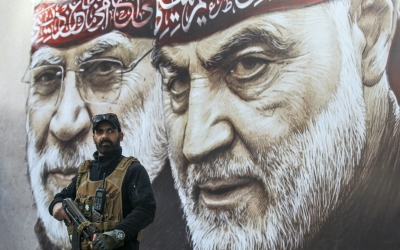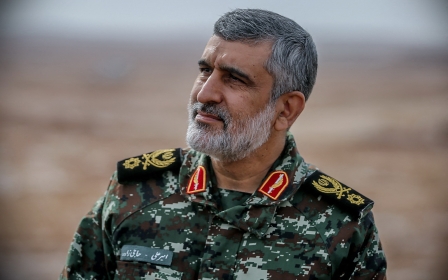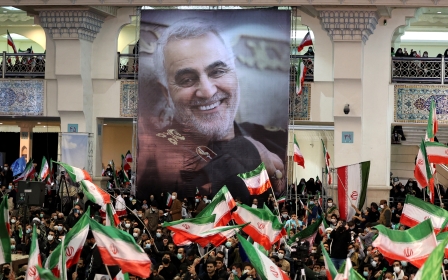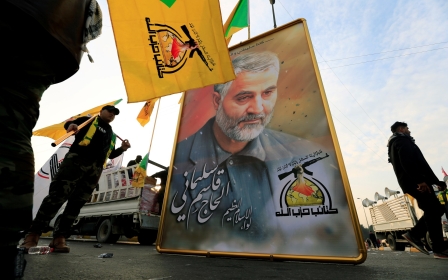Iraq: Two protesters shot in bid 'to prevent' Soleimani memorial service
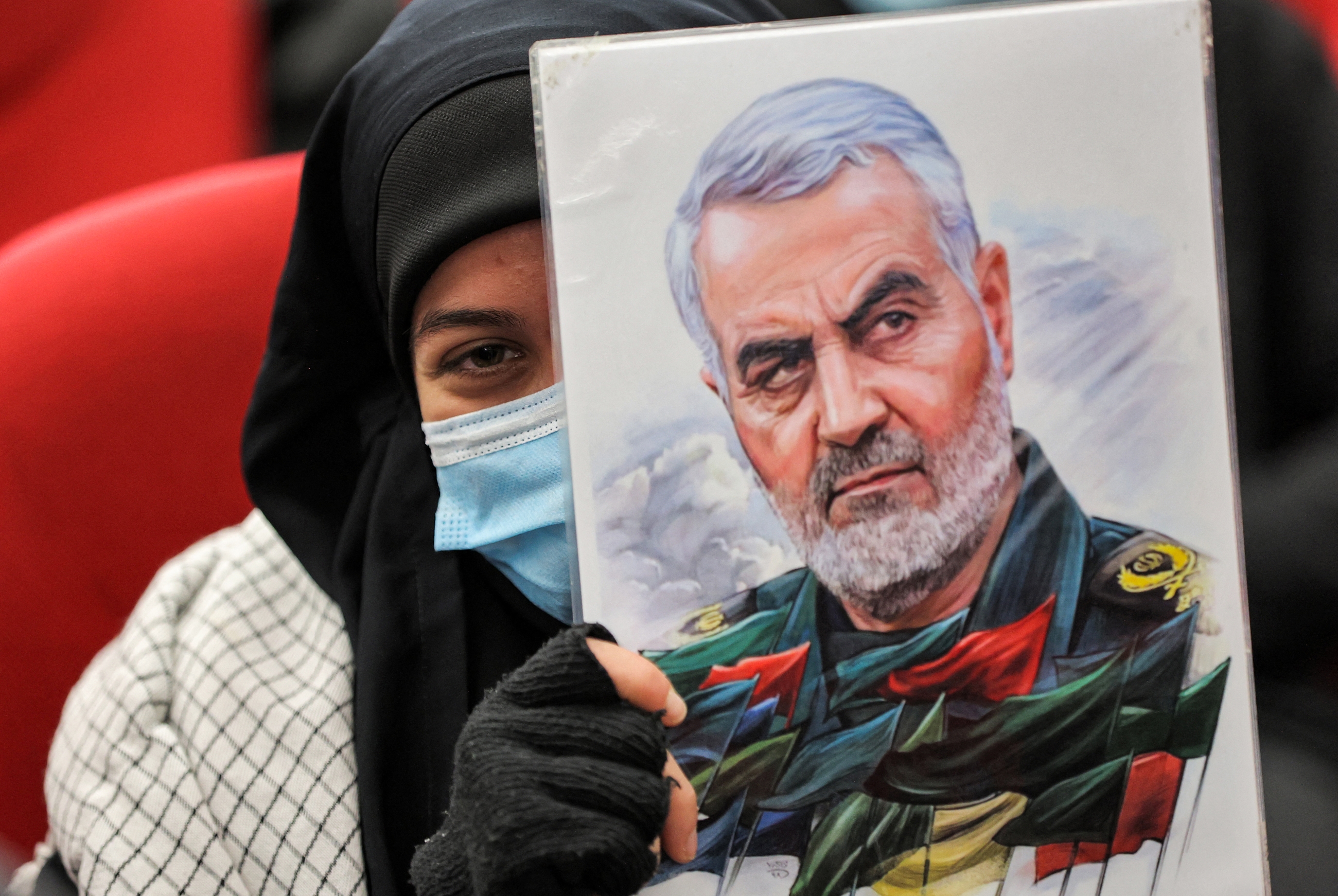
Two protesters were shot by gunmen as they attempted to disrupt a memorial service for assassinated Iranian military commander Qassem Soleimani in Iraq on Saturday.
Soleimani, who headed the Quds Force, the foreign operations arm of Iran's Revolutionary Guard Corps, was killed on 3 January 2020 in a US drone strike in the Iraqi capital, Baghdad.
He was killed along with his Iraqi lieutenant, Abu Mahdi al-Muhandis, deputy leader of the pro-Iran Hashd al-Shaabi, a coalition of former paramilitary groups now integrated into the Iraqi state security apparatus.
Iran and its Middle East allies have in recent days held a series of emotional commemorations to mark the second anniversary of the assassinations.
New MEE newsletter: Jerusalem Dispatch
Sign up to get the latest insights and analysis on Israel-Palestine, alongside Turkey Unpacked and other MEE newsletters
According to the security source, speaking on condition of anonymity, some "150 to 200 demonstrators" stormed the ceremony in the Iraqi city of Kut, some 160km southeast of Baghdad.
The protesters tried to "prevent" the commemoration, moving in just before it was due to begin and tearing down portraits of Soleimani and Muhandis, he said.
"Members of an armed faction opened fire and wounded two demonstrators," the source said, without giving further details.
Against Iranian influence
Sajjad Salem, an independent member of parliament linked to an anti-government protest movement that began in October 2019, posted a video on Facebook showing armed men in a square, with gunshots ringing out.
Salem said the video showed shots being fired by members of the Asaib Ahl al-Haq force, a key component of the Hashed.
The commemoration was suspended and security forces have been deployed heavily throughout Kut, an AFP reporter said.
Detractors of the Hashed accuse it of acting on behalf of Iran, which wields considerable cross-border influence in Iraq, and accuse it of crushing the protests that began in 2019.
In recent days, the US-led coalition fighting the Islamic State group in Iraq has come under fire, including from rockets, but with no reported casualties.
Washington has blamed those attacks on "Iran-backed groups".
The US said at the time of Soleimani's assassination that the general was planning imminent action against US personnel in Iraq, a country long torn between the competing demands of its principal allies Washington and Tehran.
Sanctions applied
Iran on Saturday imposed sanctions on dozens more Americans, many of them from the US military, over the killing of Soleimani.
Iran's Foreign Ministry said the 51 Americans had been targeted for what it called "terrorism" and human rights violations.
The step lets Iranian authorities seize any assets they hold in Iran, but the apparent absence of such assets means it will likely be symbolic.
The ministry said in a statement carried by local media that the 51 had been targeted for "their role in the terrorist crime by the United States against the martyred General Qassem Soleimani and his companions and the promotion of terrorism and violations of fundamental human rights".
Those added to Iran's sanctions list included US General Mark Milley, chairman of the Joint Chiefs of Staff and former White House national security adviser Robert O'Brien.
Middle East Eye delivers independent and unrivalled coverage and analysis of the Middle East, North Africa and beyond. To learn more about republishing this content and the associated fees, please fill out this form. More about MEE can be found here.


